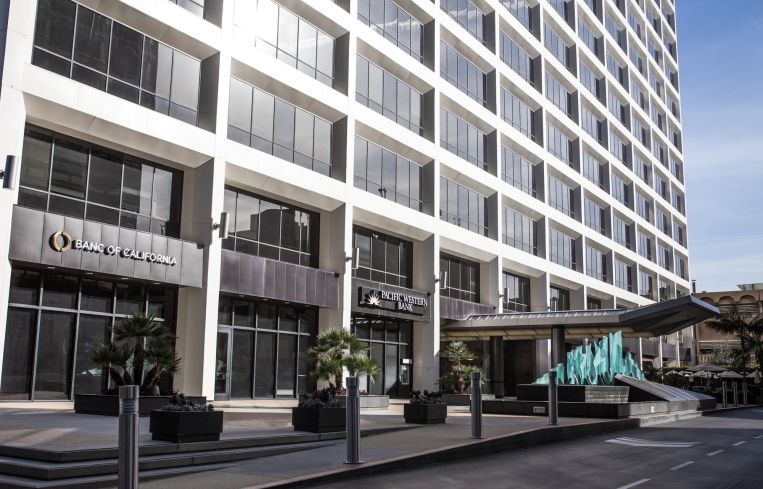Codi Expands ‘Office-as-a-Service’ Platform to Los Angeles
The WeWork rival has 36 spaces already available in the city, with more than 50 in the pipeline
By Nick Trombola March 21, 2024 8:00 am
reprints
Encouraged by success in other major cities, flexible office space company Codi has set its sights on Tinseltown.
The San Francisco-based platform, which offers private, move-in-ready workspaces, is launching its operations in Los Angeles with 36 listings across the city, together totaling nearly 92,000 square feet, Commercial Observer has learned. Santa Monica currently features the most listings with eight, Century City has seven, and Culver City and Central L.A. have five apiece, with the rest split between Downtown, Hollywood, Sunset Strip, McLaughlin, Fox Hills and West L.A. The average footprint of the workspaces is just over 2,500 square feet, with average rents between $7,000 and $10,000 per month.
Although Codi has fielded natural comparisons to companies such as WeWork, which has had a difficult few years, Codi CEO and co-founder Christelle Rohaut is quick to differentiate between the two. Codi is not a coworking space provider in that sense, Rohaut said, instead referring to it as an “office-as-a-service” company. Codi helps tenants find private, flexible, turnkey offices, which Rohaut says are often underutilized before Codi gets its hands on them, and then handles the moving process and office management. Codi itself rents the spaces it manages via special agreements with third-party landlords.
“I’m obsessed with giving life to underutilized spaces,” Rohaut said. “The commercial real estate industry is outdated, which provides some really exciting opportunities for innovation in how we get these spaces filled.”
Rohaut said that Codi is a natural fit for L.A., not just because it’s the country’s second-biggest office market, but because of the gap that exists between “overcrowded” coworking spaces and expensive, long-term leases. By offering flexible, one-year leases, Codi fits snugly between the two, she said.
That model seems to be paying dividends in San Francisco and New York City, the two metropolises Codi has had a presence in since 2018 and 2020, respectively. Codi has grown quickly in both, with some 160,000 square feet of space under its management and another 1.25 million in the pipeline, according to the company.
Yet Codi has received the most requests for space in L.A., Rohaut said, many coming from tech and entertainment companies. Much of that demand is centered around Santa Monica, Culver City and West Hollywood, and it’s in those districts that Codi will focus its attention with the more than 50 spaces it has in the pipeline.
The general collapse of WeWork, and the millions of square feet it left behind, has inadvertently created much opportunity in the flex space market — a fact that Codi doesn’t shy away from. In August 2023, the company launched a marketing campaign it dubbed “WeWon’t,” aimed at attracting tenants affected by WeWork’s office closures. It also set up a “WeWork Relief Fund,” which offers discounted spaces to former WeWork tenants.
Codi was sent a cease-and-desist letter by WeWork in October in response to the “WeWon’t” campaign, though the cross-correlation between its downfall and Codi’s recent success is quite clear. In New York City alone, the company more than tripled its revenue in 2023 and saw an 87 percent year-over-year increase in the amount of buildings occupied by its tenants, according to the company.
For the record, WeWork isn’t quite ready to give up on L.A. The company announced Tuesday that it had filed motions to retain eight of its leases across the U.S. and Canada in the wake of its Chapter 11 bankruptcy filing, including multiple floors at Constellation Place, a 35-story high rise in L.A.’s Century City district. The filing, called an “assumption” in legal terms, is subject to court approval based on the filer’s adherence to the lease terms and the curing of any losses suffered by the landlord.
Nick Trombola can be reached at NTrombola@commercialobserver.com.



